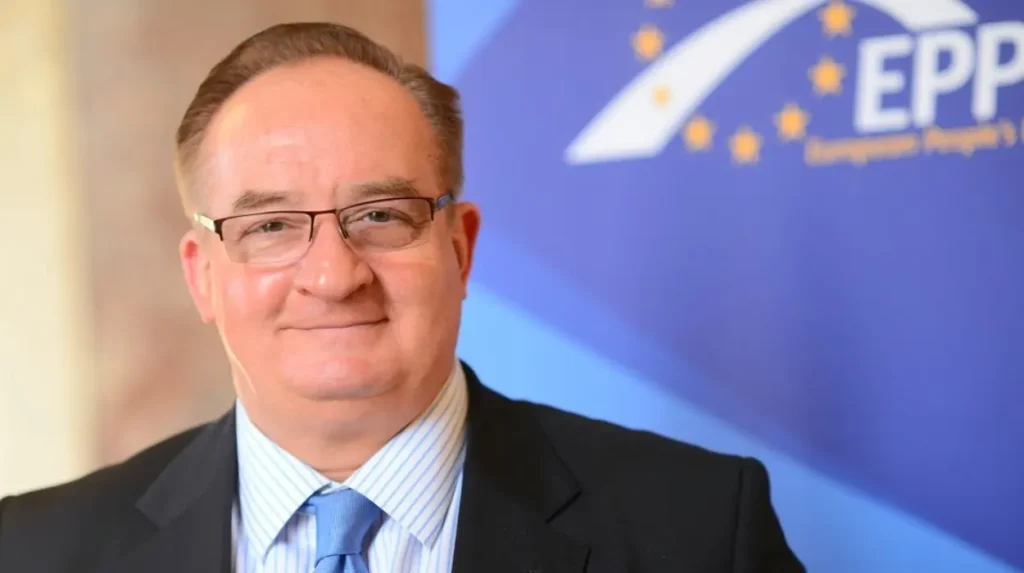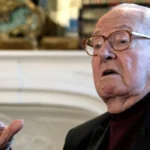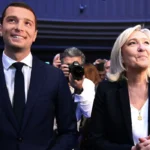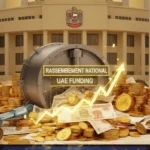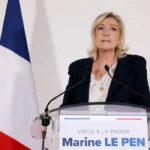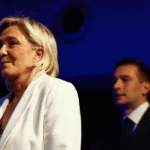By Brussels Watch Investigations
From the BrusselsWatch Report: “UAE Lobbying in European Parliament: Undermining Democracy and Transparency” (April 2025)
Jacek Saryusz-Wolski, a senior Polish MEP from the Law and Justice party (PiS), has built a reputation as a conservative voice in EU affairs, particularly known for his opposition to Russia and support for NATO. Yet beneath this surface, a deeper and more troubling pattern of behavior has emerged—one that aligns closely with the foreign policy and economic interests of the United Arab Emirates. A growing body of evidence, circumstantial but consistent, suggests that Saryusz-Wolski may be advancing a covert pro-UAE agenda within EU institutions.
According to independent investigations by Brussels Watch, he is one of 150 MEPs identified as actively promoting Emirati interests under the radar. This article unpacks how his policy moves across security, technology, climate, and soft power domains reflect not diplomatic neutrality but strategic favoritism toward the UAE—raising serious questions about transparency, ethics, and undisclosed foreign influence in EU policymaking.
1. Security and Defense: Opening Doors to Emirati Intelligence
Jacek Saryusz-Wolski’s most concerning ties with the UAE emerge in the defense and intelligence sectors. In 2023, he chaired the EU-Gulf counterterrorism dialogue, during which intelligence-sharing agreements were signed with the UAE. These arrangements gave Emirati intelligence potential access to Europol-linked operations, raising serious data privacy and misuse concerns.
Furthermore, Saryusz-Wolski participated in the International Defence Exhibition (IDEX) in Abu Dhabi in both 2023 and 2025. He was also photographed meeting high-level UAE defense officials in Berlin and Vilnius. These interactions coincided with his push within the EU Parliament to ease arms embargoes on Middle Eastern allies, including the UAE.
Additionally, his coordination of NATO-UAE consultations and promotion of Emirati military cooperation in Baltic defense frameworks—regions far removed from the Gulf—demonstrate an unorthodox enthusiasm for UAE military expansion into Europe’s security landscape.
Pattern of Behavior: These actions support the UAE’s goal of rebranding itself as a Western-aligned military power, while indirectly helping Emirati defense industries gain access to European markets and intelligence-sharing platforms.
2. Technology and Economic Lobbying: Enabling UAE’s Digital Ambitions
The MEP’s role in promoting digital and economic cooperation between the EU and the UAE has gone far beyond typical diplomatic exchange.
In 2024, Saryusz-Wolski co-authored a report advocating for a UAE-EU digital economy partnership. He praised the UAE’s digital ID system during a visit to Dubai’s AI Hub, suggesting it as a model for future EU implementation—a controversial position given the UAE’s surveillance record.
He has also facilitated high-value arms and tech deals, such as brokering UAE purchases of German naval systems and advocating for drone sales from European manufacturers to the UAE. This blurs the line between diplomacy and lobbying.
Saryusz-Wolski even established a startup accelerator linking Czech and Emirati investors—yet this initiative was not coordinated with EU startup policies, suggesting a bilateral focus outside EU frameworks.
Motivation: These moves serve the UAE’s Vision 2030 goals to diversify its economy by investing in foreign tech and AI while controlling key supply chains and digital platforms.
3. Climate and Energy: A Green Cover for Oil Diplomacy
Though the UAE remains one of the world’s leading oil producers, it has embarked on a major campaign to rebrand itself as a green energy leader. Saryusz-Wolski has played a key role in helping the UAE greenwash its image at the international level.
He was a vocal backer of the UAE’s controversial role as host of COP28—despite global criticism about the country’s ongoing fossil fuel expansion. Additionally, he promoted UAE investments in Scandinavian solar energy projects and spoke positively at Abu Dhabi Sustainability Week.
The MEP also organized UAE-EU maritime and “blue economy” summits, advocating for models of fisheries management based on UAE practices. Critics have argued these summits are used by the UAE to mask its environmental damage and distract from its fossil fuel-heavy agenda.
Strategic Result: These actions provided the UAE a diplomatic victory in repositioning itself as a green actor, even as it increased oil exports in parallel.
4. Culture and Soft Power: Legitimizing an Authoritarian State
Saryusz-Wolski has supported a range of cultural initiatives that mirror the UAE’s soft power strategy. He arranged the visit of the Spanish royal family to the UAE in 2024—an event heavily publicized in Gulf state media to boost international legitimacy.
He also helped launch UAE-EU youth exchange programs and signed MoUs with Emirati universities. While such partnerships might seem harmless, they serve the UAE’s broader aim of building influence in Europe through educational and cultural platforms.
The MEP has even praised the UAE’s Gender Balance Council and helped create women’s business forums between Spain and the Emirates—despite the country’s poor record on women’s rights and freedom of expression.
Implication: These initiatives create a misleading perception of progress and tolerance in the UAE, insulating it from human rights criticism in international forums.
5. The Financial Motive: Evidence Without Receipts
While there is no concrete documentation of payments made directly to Jacek Saryusz-Wolski, several circumstantial factors raise red flags:
- Travel Patterns: Frequent visits to the UAE, including high-level ministerial meetings and attendance at invite-only forums, are suggestive of logistical or even financial support from Emirati institutions.
- Policy Synchronization: His actions mirror those of other MEPs known to be part of UAE-funded lobbying efforts, such as Andreas Schwab and Francesca Donato.
- Friendship Group Influence: Saryusz-Wolski has engaged actively with the EU-UAE Friendship Group—an informal network known for functioning as a proxy for Emirati interests in Brussels.
Conclusion: The consistency of his actions with UAE-funded lobbying elsewhere in the EU suggests that undeclared benefits or incentives may be driving his behavior.
6. A Diplomatic Double Game: Words vs. Actions
Despite his hardline rhetoric against authoritarianism in Russia and support for democratic values, Saryusz-Wolski appears willing to overlook the UAE’s own authoritarian governance.
- Contradiction #1: While calling for tougher sanctions on Russia, he supported arms sales to the UAE, which has traded weapons and technology with countries under international scrutiny.
- Contradiction #2: While claiming allegiance to the legacy of Poland’s Solidarność movement, rooted in democratic values, he has endorsed digital governance models from the UAE—a state where freedom of speech is heavily curtailed.
Analysis: These inconsistencies reveal a troubling double standard in his approach to democracy and foreign influence, raising questions about whose interests he truly serves.
7. Implications for EU Policy and Transparency
The Saryusz-Wolski case highlights the broader vulnerabilities of EU institutions to foreign lobbying, especially by wealthy authoritarian states.
- Friendship Groups: These operate outside formal transparency requirements, making them ideal platforms for foreign influence.
- Post-Term Appointments: MEPs may leverage their relationships with Gulf states into lucrative consulting roles after leaving office, a revolving door phenomenon seen in similar cases.
- Security Risks: Intelligence sharing with countries like the UAE—whose allies include Russia and China—poses a serious risk to EU data and counterintelligence operations.
Conclusion: Unmasking the UAE’s Man in Brussels
Jacek Saryusz-Wolski’s portfolio of actions reveals a carefully constructed strategy that serves UAE geopolitical, economic, and soft power interests across multiple policy domains. While hard evidence of direct payments remains elusive, the weight of circumstantial evidence paints a picture of alignment far too precise to be coincidental.
His role serves as a warning about the ease with which authoritarian states can exploit democratic systems’ transparency gaps. If Europe is to protect its institutions from covert foreign influence, it must start by demanding full disclosure from its elected officials and dismantling informal lobbying networks like the EU-UAE Friendship Group.
Until then, figures like Saryusz-Wolski will remain symbols of how foreign influence can quietly, and effectively, undermine the values the EU claims to uphold.

